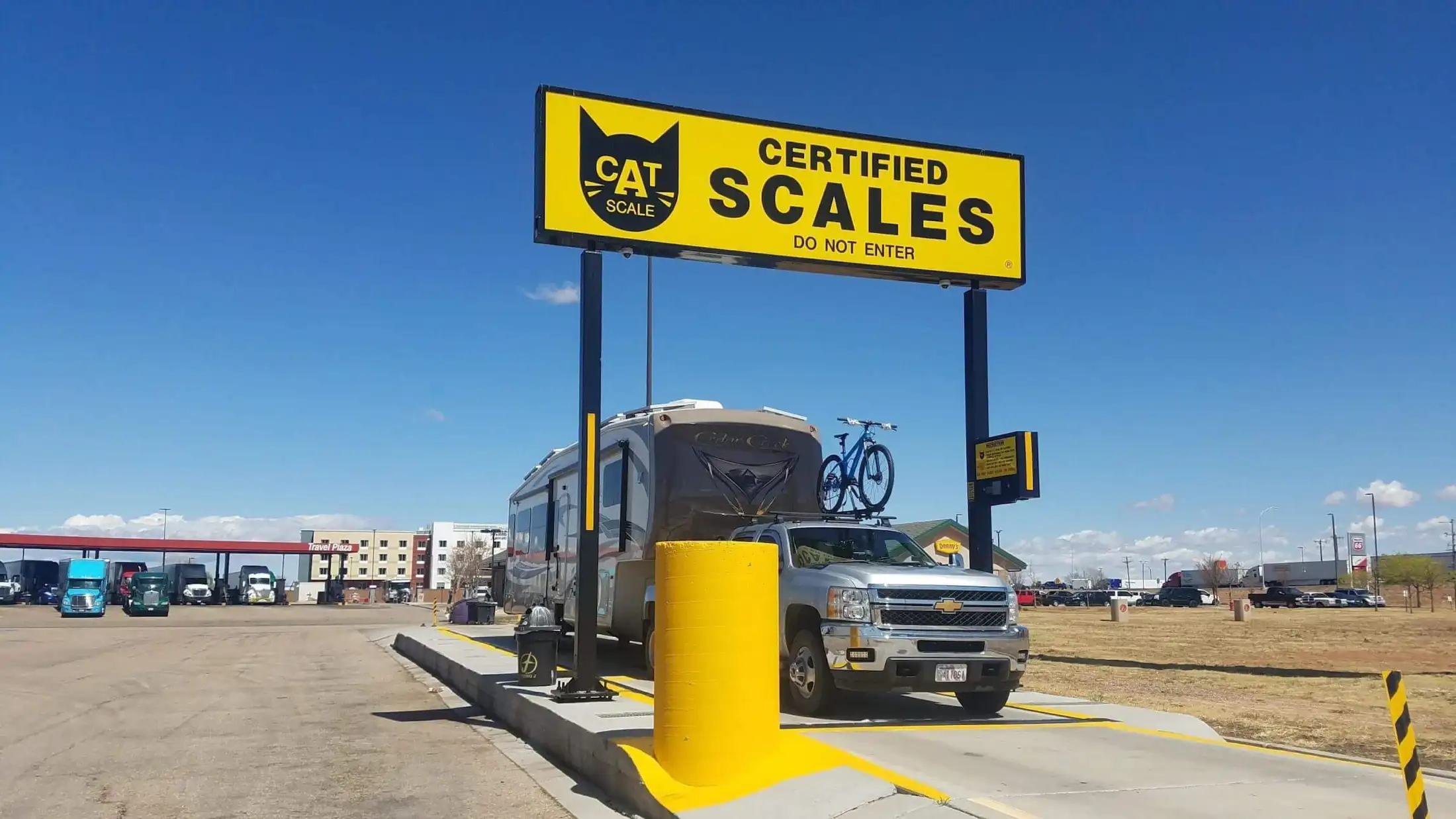When driving on the freeway, chances are you’ve seen a lot of weigh stations without paying them much thought. As an RV owner though, you may wonder if they apply to you. Just as the license and seat belt laws for RVs vary by state, the exact rules on whether or not you’ll need to stop at weigh stations will vary depending on where you’re driving. Some states also utilize random checks for vehicles to ensure they’re safe and don’t exceed weight limits. If you’re curious as to whether or not you should stop at a weigh station, we’re here to help.
WHAT’S THE PURPOSE OF WEIGH STATIONS?
Weigh stations can be found on freeways throughout the United States. They’re most commonly used for commercial truck drivers to ensure their truck’s weight doesn’t exceed the road’s limits. Many have maximum weight limits they can safely handle, and this is especially important to consider for bridges and ramps. By stopping at weigh stations, commercial truck drivers can confidently continue knowing they’re compliant with the state’s vehicle weight restrictions.
In most instances, weigh stations work electronically so drivers can pull through the station and receive an accurate weight without having to stop. Older weigh stations may require vehicles to stop in order to be weighed. Generally, there are local Department of Transportation employees or highway patrol officers who verify the weight. They may also perform vehicle safety inspections although this depends on the state and the specific station.
Some states also have weigh stations that are specifically for vehicles transporting agricultural cargo. In many of these states, drivers with this type of cargo are required to stop at weigh stations unless there’s signage indicating otherwise.
WHO HAS TO STOP AT WEIGH STATIONS?
In most states, weigh stations are for commercial truck drivers to ensure they’re transporting a safe weight along with what they’ve committed to transporting. The Department of Transportation may inspect a commercial truck if its weight has been changed from one station to the next as this may indicate the cargo was altered. In some cases, weigh stations also assist in determining any commercial transportation taxes that may be collected in applicable states.
As you approach a weigh station, there will likely be posted signs indicating the specific rules. In some cases, stations may be closed or not require drives to stop at that time.
DO RVS HAVE TO STOP AT WEIGH STATIONS?
In most instances, if your RV’s gross combined weight rating is under 10,000 pounds, you’ll most likely not have to stop. The rules do vary by state, and some may still require RVs to stop at weigh stations. In addition, some states implement random checks instead of weigh station requirements for RVs. Even if you’re driving through a state where you don’t have to stop at weigh stations, there’s a chance you’ll be pulled over simply to ensure your RV’s weight is satisfactory and matches the weight on the registration.
Most RVers say they don’t stop at weigh stations. When it comes to state roadway rules, many people don’t want to risk non compliance. It’s best to explore the regulations for the states you’ll be driving through to ensure you’re complying with their weigh station rules. In most instances, you likely will not need to stop, but it’s important to do this research beforehand so you’re aware of the regulations. Additionally, if you see weigh stations with signage indicating your RV is subject to being weighed, it’s often better to err on the side of caution and utilize it.
